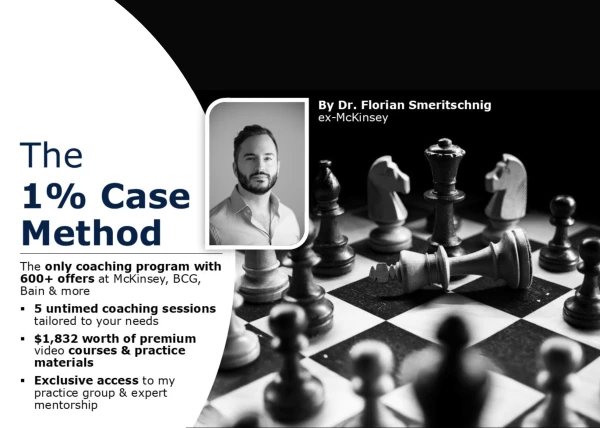Say we're brainstorming ways to increase revenue and the client wants to pursue new products (let's say it's a wine manufacturer and I propose new products like champagne, vineyard related merchandise etc..).,will the interviewer keep asking "what else" until I arrive at the idea they are looking for (eg beer production)..or is it fair to assume that they would move to the next prompt once you give a few new product ideas and say yes let's go with new products, the client wants to launch beer. I assume brainstorming is evaluated more on how you arrive at the ideas instead of the number of ideas themselves (i.e capturing that one idea the interviewer is looking for).
The “what else” question


Hey there,
There is no single correct idea the interviewer is looking for in such cases but rather they are not satisfied with either your
- breadth
- depth
- insightfulness
of you answer, or all points together So what they want to see is that
- you are able to expand your current ideas a bit further (go deeper)
- provide more concrete potential solutions to the question (go wider)
- work well under pressure
- keep up the top-down communication and structure even if you are being put on the spot
Cheers,
Florian

Its not about the perfect answer. There are many many good answers.
When you hear "what-else", there could be two things:
- Interviewer is not convinced that you have covered all areas- so refer to your structure, take some extra seconds and fill the gaps
- Interviewer is stress testing you- if your structure is comprehensive, stand your ground and defend it. Otherwise, do as above
Ideas/Solutions need to be realistic and executable. Not everything can be implemented and not everything can be implemented on Day 1. So you need to go a step further and apply some prioritisation rules to provide a realistic plan for the ideas/solution.

The "what else" is not always necessarily because the interviewer is pushing for a specific answer. This is also the wrong way to approach a case interviewer. It's not about coming up with THE answer but more to share how you think about different potential "answers". As a result, breadth and depth of thinking are equally important.
It's also worth noting that the "what else" is often a convenient default for an interviewer to fill time and/or just see how you react under a little more pressure.

Hi there,
I highly recommend that, when asked for "what else" you don't just keep listing things, but also refer back to (or create) a structure. They're trying to see if the you can tackle the problem logically+with structure, not just if you can come up with a million ideas!












